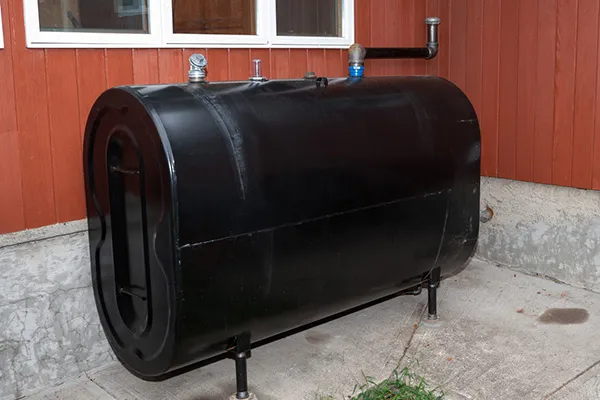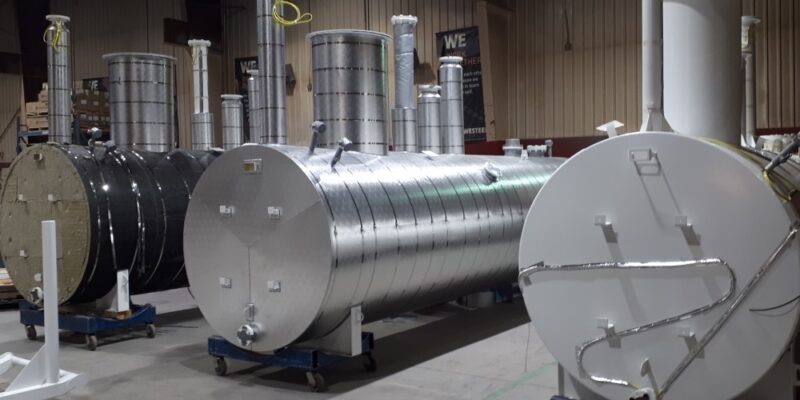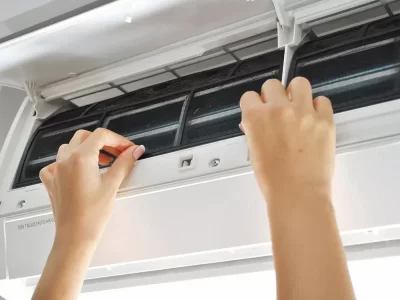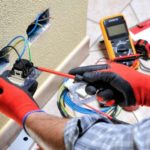As we move into 2025, energy efficiency continues to be a top priority for homeowners. With rising energy costs and growing environmental concerns, finding ways to reduce energy consumption without sacrificing comfort is essential. If you rely on quality domestic heating oil shropshire for warmth, there are several strategies you can implement to make your system more energy-efficient. From regular maintenance to upgrading key components, these simple yet effective steps will help you optimize your heating oil system for maximum efficiency and savings.
In this blog, we’ll explore five ways to make your heating oil system more energy efficient in 2025.
1. Invest in a High-Efficiency Oil Burner
One of the most effective ways to improve the energy efficiency of your heating oil system is by upgrading to a high-efficiency oil burner. Modern oil burners are designed to use less fuel while delivering more heat, meaning you’ll spend less on heating oil and reduce your carbon footprint. These high-efficiency systems can reach up to 90% efficiency or higher, compared to older models that often only achieve 70-80% efficiency.
When shopping for a new oil burner, look for models with features like electronic ignition, which eliminates the need for a standing pilot light, reducing fuel waste. A new oil burner not only improves efficiency but can also extend the lifespan of your heating system, saving you money on repairs and replacements in the long run.
Tip: Ask your heating oil supplier or HVAC technician about upgrading to a high-efficiency oil burner if your system is more than 10-15 years old.
2. Schedule Regular Maintenance and Cleanings
Just like any other appliance, your heating oil system needs regular maintenance to perform at its best. Scheduling annual service appointments with a licensed technician ensures your system is running efficiently and helps prevent costly breakdowns. A thorough cleaning, which includes cleaning the burner, fuel filter, and venting system, can significantly improve the efficiency of your system.
During a maintenance check, your technician will also inspect the oil tank and pipes for any leaks or damage, which could cause your system to work harder than necessary. Proper maintenance can also help identify and resolve any issues before they become major problems, saving you from expensive repairs down the road.
Tip: Annual maintenance in the fall, before the heating season begins, is the best way to ensure your system is in peak condition for winter.
3. Upgrade Your Thermostat to a Smart Model
Upgrading to a smart thermostat is an easy and effective way to improve the energy efficiency of your heating oil system. Smart thermostats allow you to control the temperature of your home remotely via an app on your phone, helping you optimize your heating schedule. For example, you can set your thermostat to lower the temperature when you’re not home and automatically raise it before you return, ensuring you’re not wasting energy on heating an empty house.
Some smart thermostats also have learning capabilities, meaning they can automatically adjust based on your routines and preferences, further optimizing your energy usage. By maintaining a comfortable temperature only when needed, you can significantly reduce your heating oil consumption.
Tip: Look for a thermostat that integrates with your existing heating oil system and offers energy-saving features like adaptive scheduling and real-time usage monitoring.

4. Seal Drafts and Improve Insulation
One of the easiest and most cost-effective ways to improve your home’s energy efficiency is by sealing drafts and improving insulation. Even if you have a highly efficient heating oil system, drafts and poor insulation can cause your system to work harder, leading to higher energy consumption.
Start by inspecting areas such as windows, doors, attics, and basements for drafts. Use weather stripping, caulk, or sealant to close any gaps that could be letting warm air escape. Adding or upgrading insulation in your attic and walls can also prevent heat loss, ensuring your home stays warm without overworking your heating system.
Tip: Consider hiring a professional to conduct an energy audit of your home, which can identify areas where insulation and air sealing will have the greatest impact.
5. Switch to a Biofuel-Blended Heating Oil
If you’re looking for a more sustainable option for your heating system, consider switching to a biofuel-blended heating oil. Biofuels, such as biodiesel, are made from renewable sources like plant oils and animal fats, and they can be blended with traditional heating oil to reduce your carbon emissions. Many heating oil suppliers now offer blends like B5 (5% biodiesel) or B20 (20% biodiesel) that are compatible with most oil heating systems.
By using biofuel-blended oil, you can reduce the environmental impact of your heating system without sacrificing performance. Biofuels burn cleaner, producing fewer pollutants and greenhouse gases, while still providing the same reliable warmth you need during the colder months.
Tip: Check with your heating oil supplier to see if they offer biofuel-blended options and if your system is compatible with these blends.
Conclusion
Making your heating oil system more energy-efficient in 2025 doesn’t have to be a daunting task. With the right upgrades and regular maintenance, you can reduce energy consumption, lower your heating bills, and contribute to a more sustainable future. Whether you choose to invest in a high-efficiency oil burner, upgrade your thermostat, or switch to a biofuel blend, there are plenty of ways to optimise your system for maximum performance.
By following these five simple steps, you’ll be able to enjoy a warmer, more comfortable home in 2025, while minimising your energy usage and environmental impact.



















Comments